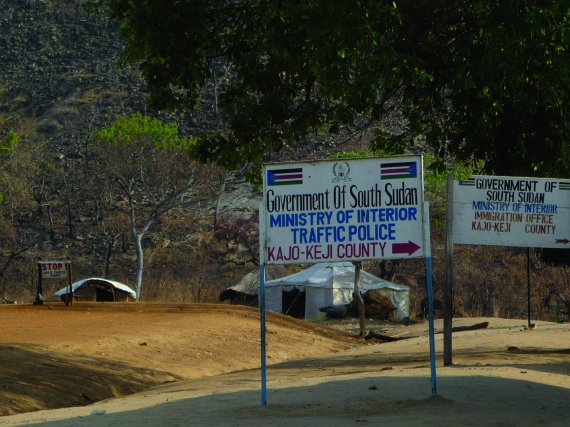This is stated in the PhD thesis written by Lotje de Vries, who obtained her doctorate yesterday. She researched into the state formation process of South Sudan before it obtained independence from Sudan in 2011. During this process, liberation forces SPLM acted as the government in this part of the country which came under their control since 1997. They implemented border checks, made laws and collected taxes. The peace agreement of 2005 made it possible for these guerrilla forces to form themselves into a central government, an army and a political party. There came a flag, a national anthem and number boards for government bodies. ‘The military elite got a new set of instruments to wield its own power in a political way and the state is formed in this manner.
High pressure cooker
The result of this can be observed in the border area with Uganda and Congo. Although the border passes are located far from the capital city Juba, many government officials work there; no border means no state. In this high pressure cooker, the PhD researcher analyses the power play among local representatives of the central forces, who are often ex-guerrillas. She spent countless hours talking and playing chess at Sudanese border posts. Negotiation as to who holds power is an ongoing process. ‘Along the border with Congo, the South Sudanese sometimes make up incidents during negotiations with Congolian authorities to reaffirm their power,’ relates De Vries.
Recognition
Now that clear relationships have been established among the governing authorities along the border, the gains from the years of ‘playing government’ before the official independence are channelled to the capital city, shaping up the state in the process. External recognition from donors and diplomats who have considered the country as autonomous even before its independence also contributed to state development. ‘Official power is therefore the result of consolidating coincidences and negotiations into something bigger,’ says De Vries. Despite corrupt practices, Southern Sudan functions as a state, she concludes. ‘With so much negotiation going on, the formation process is difficult to trace along formal lines, but the people are able to govern themselves.’

